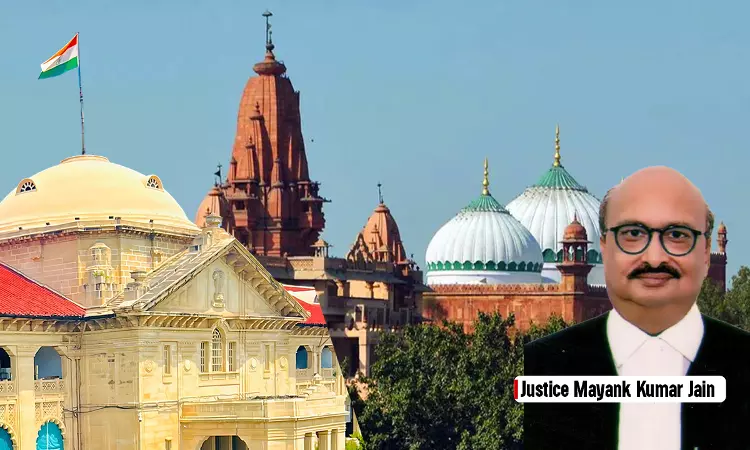BREAKING | Krishna Janmabhumi Dispute: Suits Of Hindu Worshippers & Deity Maintainable, Says Allahabad HC; Rejects Masjid Committee's Challenge
LIVELAW NEWS NETWORK
1 Aug 2024 2:05 PM IST

Next Story
1 Aug 2024 2:05 PM IST
In a significant ruling with potential implications for the pending suits before the Allahabad High Court regarding the Krishna Janmabhoomi-Shahi Eidgah Mosque dispute in Mathura, the High Court today DISMISSED the plea of Shahi Idgah Masjid filed under Order 7 Rule 11 CPC. This plea challenged the maintainability of 18 suits filed by the deity and Hindu worshippers.With this decision, a bench...
